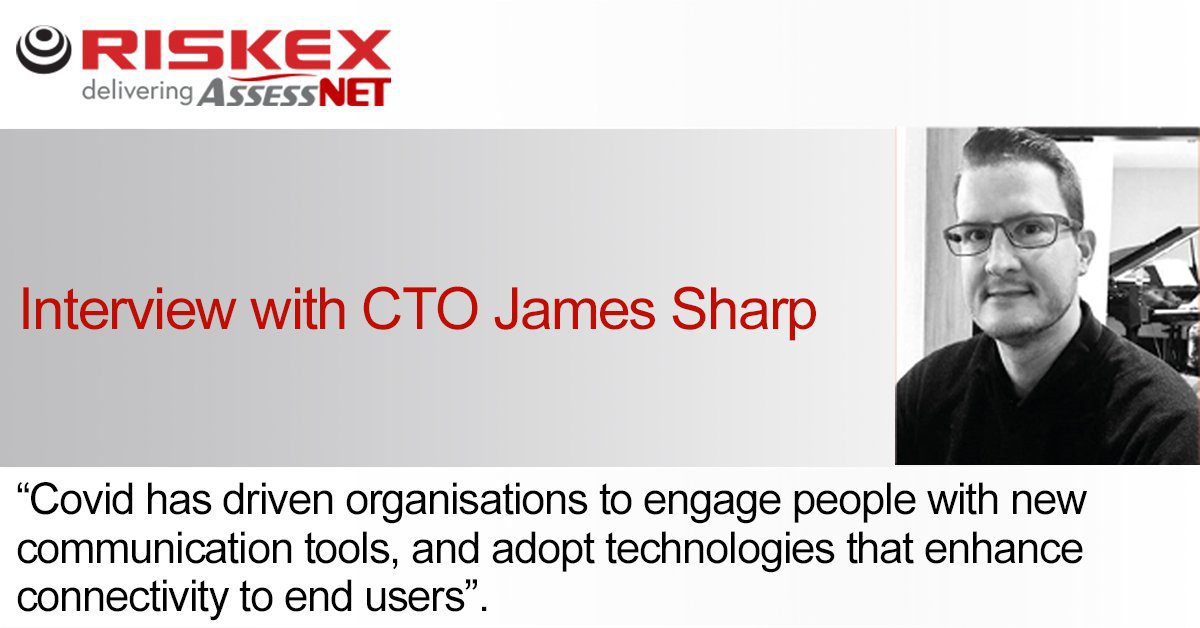Interview with James Sharp, CTO, Riskex: Emerging technologies in EHS
04/11/2020
04/11/2020

Safety professionals with expertise in IT are a rare find; but one that fits that profile is James Sharp, GradIOSH. James has taken his health and safety qualifications to NEBOSH diploma level. He was a programmer before joining Riskex to develop its cloud-based safety management system, AssessNET. “Whilst I was creating the AssessNET platform, I embarked on a professional learning and qualification journey so that I could better understand what health and safety leaders ad practitioners need technology to do for them”
James goes on to explain the value his experience as a safety professional adds to AssessNET clients: “The fact that I can understand the pain points, improvement strategies and compliance obligations of our end users has helped me to approach our product roadmap in a client-led way”.
He sees the Covid pandemic as an accelerator for technology adoption across enterprises, including the safety function. In the UK’s first lockdown, Sharp and the rest of the Leadership team at Riskex created Safe2Day, a Covid health surveillance and tracing platform, which supports businesses to control Covid transmission, address employee “Covid Anxiety” and effectively plan resource requirements by assessing who is and who isn’t fit to work. To deal with privacy concerns, data collected via Safe2Day is held centrally and with GDPR-compliant security.
“Covid has driven organisations to engage people with new communication tools, and adopt technologies that enhance connectivity to end-users,” he says.
When asked to comment on the subject of emerging EHS technologies, one example of more “connectivity” that he forecasts is set for growth is “ring-fencing”, where smartphones receive automated safety notifications related to their geographical location: for instance, crossing a threshold into a restricted or mandatory PPE area.
But he predicts that “machine learning” technologies, which could “learn” how to predict a problem or risk and “assess” a situation by analysing multiple data sets – will struggle to gain a hold unless organisations become much more willing to share safety data and collaborate more.
James elaborates: “Automated decision engines need time and data to learn, so for them to work effectively, collaboration and sharing of safety data between companies will be crucial; GDPR concerns and worries about maintaining control of commercially sensitive information will continue to create blockers that mean the levels of collaboration simply won’t be adequate to drive significant use of decision engines for some time to come”
To find out more about how we can help you remain operational and take care of your team whilst furloughed or working from home, book a personal demonstration
BizSpace
Linford Forum
18 Rockingham Drive
Milton Keynes
Buckinghamshire
MK14 6LY
What3words reference:
Make an enquiry:
Company No. 05174302
VAT No. 844 5092 22

 Latest HSE statistics: Work-related Musculoskeletal Disorders
Latest HSE statistics: Work-related Musculoskeletal Disorders